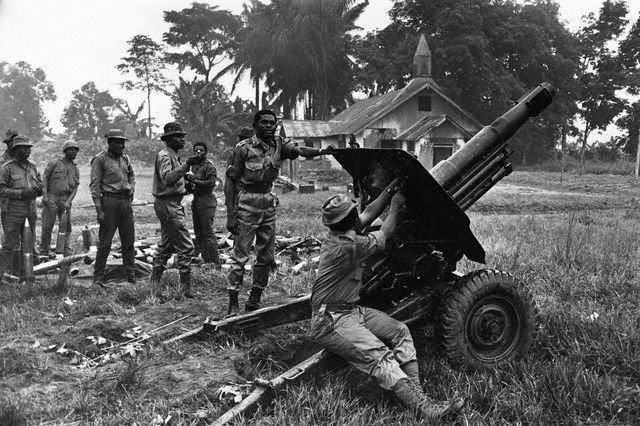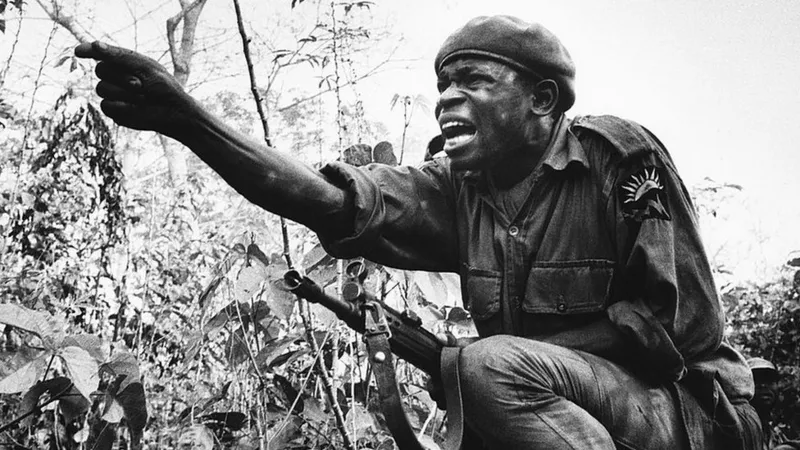The Water Closed In
In 1967, the sea turned against Biafra.
What was once a shimmering promise of trade, relief, and hope became a wall of silence. When the Nigerian army launched Operation Tiger Claw and captured Calabar, the tides changed, literally and symbolically. The sound of engines at the port went still, and the last route connecting Biafra to the wider world was severed.
Ships that once carried food and medicine never arrived. Letters stopped coming. Fishermen watched the horizon, not for the dawn, but for danger. The blockade was not just military, it was economic, psychological, and human. The people were not just surrounded by soldiers; they were surrounded by scarcity.
Operation Tiger Claw: The Day the Sea Turned Hostile
Operation Tiger Claw was swift, brutal, and strategic, just like the Asaba Massacre.
In October 1967, the Nigerian army launched an amphibious assault to capture Calabar—a crucial seaport that served as one of Biafra’s arteries to the outside world. Once it fell, the blockade tightened like a noose.
Without Calabar, the Biafran economy bled out. Food became a weapon, and hunger a new kind of bullet. The loss of a single port changed the rhythm of survival. Markets were emptied, trade vanished, and the once-bustling docks became graveyards of ships and dreams.
It was not merely a military victory; it was the collapse of access, the silencing of exchange. It was a reminder that whoever controls the ports controls the pulse of a people.
Ports and Blockades: The Arteries of a Nation

Every nation has arteries through which life flows. For some, it’s the railways; for others, the seas. For Biafra, it was Calabar, Port Harcourt, Bonny, gateways that fed both body and economy.
When those arteries were blocked, survival became a private battle. Families hid their hunger behind silence. Mothers ground cassava peels into flour. The sea, once a friend, became an unspoken enemy.
And yet, decades later, the same question lingers: what happens when a nation cannot feed itself without foreign ships?
Today, Nigeria’s ports are open but our economy is still blockaded. Not by soldiers this time, but by dependence. We import what we could produce. We borrow what we should build. Our markets are full of goods made elsewhere, while our factories rust in silence.
Broken Biafra, Broken Economy
The blockade that starved Biafra out of breath has become, in another form, the blockade that starves Nigeria of growth.
Once, it was enforced by warships; now, it’s maintained by weak industries and broken systems.
We lost the war, yes, but we also lost the lesson. The lesson that freedom is more than the raising of a flag; it’s the ability to sustain oneself without begging for bread across borders.
Today’s young Nigerians, weary from joblessness, unemployment, and inflation, have found new “escape routes” not through ports, but through airports. Japa has become our new Calabar, our modern exodus to survival. The blockade remains, only disguised as economic frustration and dwindling opportunity.
Lessons from the Lost Ports
The fall of Calabar was not just about geography, it was about agency. The moment a people lose control of their entry points, they lose control of their destiny.
History whispers its warning: nations that cannot trade fairly, produce locally, or manage their resources will forever live under silent sieges. Our blockades today are not marked by naval ships, but by policies that choke creativity, taxes that drown small businesses, and a system that exports its brightest minds instead of its strongest goods.
We are, in many ways, still surrounded.
Reclaiming the Shores
Yet, history also offers a mirror and a chance for redemption.
The story of Operation Tiger Claw reminds us that freedom without access is fragility, and independence without self-reliance is an illusion. But it also reminds us that tides can change.
We can rebuild our ports, not just the physical docks of Apapa and Calabar, but the invisible ports of innovation, integrity, and local strength. We can turn dependency into enterprise, and survival into stability.Because true freedom will not come when the ships return, it will come when we no longer wait for them.
